“I thought I was out of shot.”
“But registering a time?”
“And I did. He’s in the results.”
“And there had to be an explanation,” Diamond said.
Trevor waited to hear it, still wanting to give nothing away.
“You were carrying Pinto’s chip. The timing system is electronic, so every runner has to wear one. Before you dumped the body down the shaft, you removed the chip from his shoe. With that, you could masquerade as a competitor. You took a short cut through Lyncombe and joined the stragglers completing the last section of the race and carried the chip across the line, right? The electronics showed Pinto finished, so what happened on Combe Down was neatly erased as far as anyone could tell. But I’ve studied the video and it was definitely you.”
Trevor felt for the baseball cap again and pushed the peak higher up his forehead. “In a strange way, I’m relieved it’s over. What happens next?”
“We take you in as a suspect and get a statement from you. A confession is your best option.”
“Concealing a body is a serious crime, isn’t it?”
“Serious, but not the worst.”
“I didn’t intend to kill him.”
“You’ve made that clear.”
Diamond nodded to Halliwell, who told Trevor to stand up. He cuffed him and said, “Let’s go.”
Paloma joined Diamond that evening for what he called a painkiller — a therapeutic pint in his local, the Old Crown at Weston, a dog-friendly pub where Hartley seemed to know he was appreciated and lay on his side as if to announce that all shoes and chair legs in this sanctum were safe from his attention.
“So Olga comes out of this best,” Paloma said after she’d heard the story of Diamond’s day. “She escapes from Konstantin, who is the real villain, and ends up with the gorgeous Murat.”
“Gorgeous he is not,” Diamond said. “He left me with one good arm and a pain in the neck that isn’t going to go away for the rest of the week.”
“But you won’t turn him in?”
“My battered body tells me to lock him up and throw away the key, but I guess not. He was trafficked. If I reported him, the taxpayer would have to pay for his keep while his asylum application was considered. Allowing him to move in with Olga at her expense is a better option.”
“And Trevor. What will happen to him?”
“The police have some discretion in dealing with first-time offenders who make full confessions. Have you heard of out-of-court disposals? They’re a way of dealing with someone without prosecuting them and saddling them with a criminal record. I said nothing to him about this, but I’ll speak to Georgina.”
“The other baddy in this case, apart from Konstantin, was Tony Pinto, as you said from the start.”
“And there’s a twist,” he said. “Pinto liked to be known as the Finisher, striking fear into everyone under his control. As it turned out, the real Finisher was Trevor, and in more than one sense.”
“He finished off Pinto,” Paloma said. “What else?”
“He finished the race. He hadn’t run the course, but he finished and carried Pinto’s microchip over the line.”
“Neat.”
“I think so.”
“Clever old you.” She swirled the gin and tonic in her glass and watched the movement of the floating slice of lemon. “That leaves only one thing to be settled.”
“What’s that?” His face changed rapidly from a look of mild enquiry to strong suspicion that something personal was about to be said.
But he was reassured. “Hartley,” Paloma said.
At the sound of his name, the small dog raised his head to look at her.
“His owner, my neighbour Miriam, will be back from Liverpool at the weekend. She’s arranged the care package for her mother. I’m going to miss him. The house will seem empty without him.”
“Maybe you should get one of your own.”
“A dog?”
“Or a cat.”
“Funny,” she said. “I was thinking along the same lines. How would you feel if I made an offer to Raffles?”
“To move in with you? Yikes!” he said. “He wouldn’t stand for that. I’d need to come with him.”
She laughed. “Would that be such a bad thing?”
Running Into Writing
An Afterword by the Author
I am sometimes asked if I’m a runner. I must confess that I’m not even a fun-runner. I can think of a thousand things that are more fun. Paying my income tax is more fun. It’s true that I’ve written several books with running as a theme, but I am pathologically incapable of doing it myself. I get the stitch if I go a few yards. As a youth, I tried. How I tried, shambling and shuffling through the streets of suburban Whitton after dark, being questioned by the police (this was long before jogging became respectable), attacked by dogs, tripping over paving stones and running into lampposts when my glasses steamed up, all the time convincing myself I was training and would soon amaze the world. And on the day of reckoning I staggered in last in the school cross-country race. All my memories of running are painful. But I owe my career to it.
In 1948, my father took me to the Olympic Games. I was eleven, an impressionable age. The excitement, the atmosphere in the stadium and the achievements of great athletes like Emil Zátopek and Fanny Blankers-Koen stayed with me all my life. I dreamed of being a runner myself. I still do. Eventually I found my own way to participate by writing about athletics. I discovered a rich seam nobody else had mined: the history of the sport. A new magazine was desperate for articles and published me. Overnight I was billed as The World’s Foremost Authority on the History of Athletics; in truth, I was the world’s only authority. By 1968 I had the confidence to publish a book on great runners of the past called The Kings of Distance . It was well received. It doesn’t get better than this, I thought. Will I ever write anything else of book length? Realistically, no.
Then, by some quirk of fate, an advert appeared in the press in 1969 announcing a first crime novel competition. The prize was £1000, more than my annual salary as a teacher. Encouraged by my wife Jax, who is a keen reader of crime fiction, I submitted a whodunit about a Victorian long-distance race and called it Wobble to Death . With a catchy title and an unusual setting that worked within the convention of a puzzle story, it won the prize.
Barely believing in myself as a crime writer, I needed to find subjects other than running to use as backgrounds for detective stories. I played safe and embarked on a series that was set, like Wobble to Death , in the late Victorian period and featured various popular entertainments such as pugilism, the music hall, the seaside and table-turning. After five years I was able to retire from teaching to make my living as a professional writer.
I still couldn’t see myself making a career out of Victorian whodunits. The sport of running remained a passion and I returned to it in a contemporary novel. In the 1970s, athletics was undergoing huge changes. The old code of amateurism was being displaced. For years, so-called shamateurs had received backhanders from promoters of a sport that was a good money-spinner. With the extra incentive of cash payments came temptations to cheat by using drugs. It was an open secret that athletes were improving their performances with sophisticated chemical and biological aids. State-sponsored athletes from the Eastern Bloc had for some decades achieved unbelievable records. In the free world there was evidence of hormone injections and the use of blood transfusions to gain lucrative advantage.
I decided to air some of these issues in fiction. Enter Goldine Serafin, a gifted and attractive American woman who would challenge for three gold medals at the next Olympic Games, due to be held in Moscow. Goldengirl (written as Peter Lear) was about the marketing opportunity this presented and the moneymen, crooks and cranks who homed in on the unfortunate athlete to exploit her. The novel became a bestseller. Even better, it was bought by Columbia and filmed with the beautiful Susan Anton in the starring role and a cast that included James Coburn, Curt Jurgens and Leslie Caron. The bad news was that in real life the Russians marched into Afghanistan and the Americans boycotted the Olympics in protest, so Goldengirl , the film, never went on general release.
Читать дальше
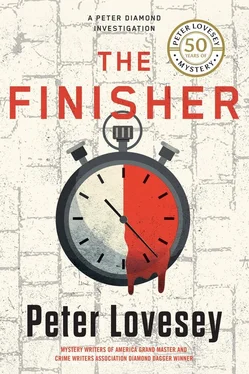
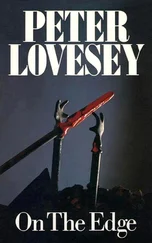

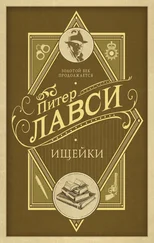
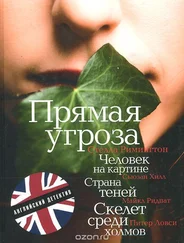

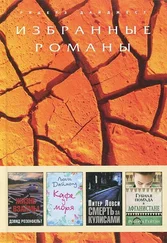


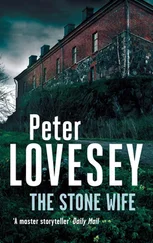
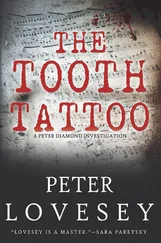
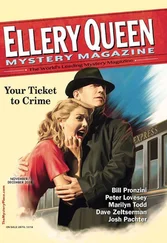
![Питер Ловси - Do Not Exceed the Stated Dose [Stories]](/books/437200/piter-lovsi-do-not-exceed-the-stated-dose-stories-thumb.webp)